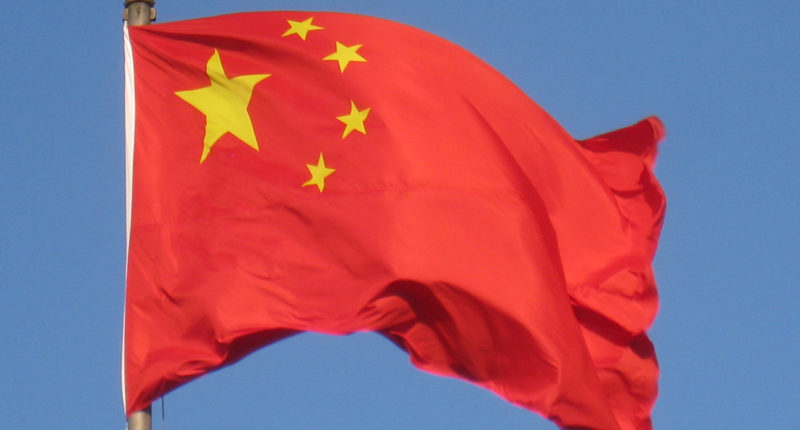Australia bans DeepSeek from all government devices over national security concerns
After Italy, the United States and Taiwan, China’s DeepSeek is facing another setback. This time, Australia has banned the platform from all government devices. The Australian government cited “national security concerns” as the primary reason for the decision. According to Home Affairs Minister Tony Burke, DeepSeek poses an unacceptable threat to government technology and data, prompting the immediate ban to safeguard national security and the country’s interests.
The Secretary of the Home Affairs Department issued a detailed directive on January 4, according to a report by Reuters. The order mandates the removal of DeepSeek from all government devices and systems. Interestingly, the directive cites security assessments as the reason for the ban, rather than the chatbot’s connection to a Chinese-owned company.
Speaking of details, government employees and departments are forbidden from using, downloading, or installing DeepSeek products, applications, or web services on government systems or devices. Additionally, any DeepSeek software or services already installed on government devices or systems must be identified and completely removed.
Notably, this restriction applies strictly to government systems and devices, but It does not affect private citizens, meaning individuals in Australia can still use DeepSeek on their personal devices if they want to.
In January, the Hangzhou-based startup, DeepSeek launched a new open-source AI platform that is capable of mimicking human reasoning. The platform has attracted significant attention and mixed reactions globally. Some people are amazed by its potential, while others are concerned about its capabilities.
So far, the company released mainly two models, called ‘DeepSeek-V3’ and ‘DeepSeek-R1.’ The interesting part is that its DeepSeek-R1 model is said to be 20 to 50 times more cost-efficient than similar offerings from industry giants.
However, things are not as smooth for DeepSeek as they seem. Several countries, including South Korea, Ireland, France, and Italy, have raised concerns about the Chinese AI startup’s data practices. Some regulators from these countries have sent notices to DeepSeek, requesting more clarity on its data privacy policies.
To be precise, some of these countries want detailed information regarding the type of personal data the Chinese AI company is collecting from its users. Additionally, regulators want to know the source of the data collection, its purpose, and, most importantly, whether the company is storing the data in China or outside the country.
China has officially responded to US President Donald Trump’s imposition of a 10% tariff on a broad range of Chinese goods. Trump’s tariffs target Chinese imports, citing Beijing’s failure to curb the flow of illegal narcotics, particularly fentanyl, into the United States. In retaliation, China has now initiated regulatory measures against prominent American companies operating in China, as well as launched an antitrust investigation into Google.
China’s Ministry of Finance announced that the country would impose new tariffs on a variety of American products. This includes a 15% tariff on coal and liquefied natural gas (LNG), alongside a 10% duty on US crude oil and agricultural machinery. The US supplied approximately 6% of China’s LNG imports last year, a relatively small portion of China’s total energy consumption. China also introduced tariffs on select automobile imports from the United States, which could impact companies like Tesla. These tariffs are scheduled to take effect on February 10, so there is a brief window for potential negotiations between the two nations. Such negotiations are unlikely, though, since the trade conflict between the United States and China has intensified following reciprocal actions by both nations.
And if the tariffs are not enough, China’s State Administration for Market Regulation (SAMR) announced an antitrust investigation into Tech giant Google. The probe will examine whether the US tech titan has engaged in monopolistic practices that violate China’s Anti-Monopoly Law. While Google’s search engine and many of its internet services have been unavailable in China for more than a decade (you can thank government censorship for that), the company’s advertising business is still operational in the country.
“Because Google is suspected of violating the Anti-Monopoly Law of the People’s Republic of China, the State Administration for Market Regulation has launched an investigation into Google in accordance with the law,” the SAMR said in a statement. The specific allegations against Google have not been disclosed, and the company has declined to comment on the matter so far. Still, this new probe is widely viewed as a retaliatory measure in response to the U.S. tariffs. It also follows similar regulatory actions taken by China against other American tech firms in recent months. In December, China launched an antitrust probe into Nvidia over its acquisition of Mellanox Technologies, and Intel products sold in China were subjected to a security review by a Chinese industry group.
In addition to the Google investigation, Chinese authorities have placed several U.S. companies on the country’s “unreliable entity list.” Notably, PVH Corp., the parent company of Calvin Klein and Tommy Hilfiger, and Illumina Inc., a U.S. biotech firm specializing in gene sequencing, were added to this list. According to China’s Commerce Ministry, these companies allegedly took discriminatory measures against Chinese enterprises and damaged the legitimate rights and interests of Chinese businesses. Being placed on the unreliable entity list means that the firms will incur penalties such as monetary fines, trade restrictions, and more.











